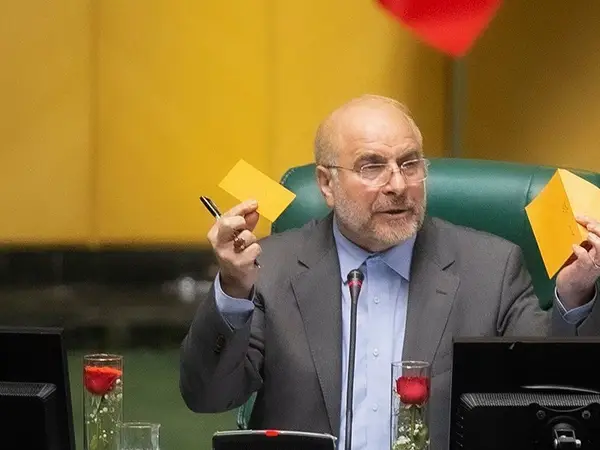In one of the most lackluster elections in Iran's parliament (Majles), Mohammad Bagher Ghalibaf was re-elected as the speaker of parliament for the third time.
While he was elected twice with 230 votes out of 290 in the previous two years, he won the speakership with only 193 votes on Wednesday.
The highest number of votes ever won by a parliament (Majles) speaker in annual elections was 237 votes cast for former speaker Ali Larijani in 2016 and the lowest number was 140 votes cast in favor of Akbar Hashemi Rafsanjani in the second year of the first round of the parliament in Iran in 1980.
Many Iranian lawmakers and political observers had said during the past week that despite a scandal about Ghalibaf family’s luxury shopping trip to Turkey in April and his involvement in a major financial corruption case, he was poised to get re-elected. Several politicians had opined that the fate of this year's election was going to be determined outside the Majles, meaning at Supreme Leader Ali Khamenei's office.
Other members of the Majles presidium were also re-elected in their posts although there was very little information in Tehran media about the tally of the votes. Most posts in the presidium, including those of the two vice speakers went to the ultraconservative Paydari party. The combination could indicate that Paydari knew Ghalibaf was the predetermined speaker, so it settled for keeping what they already had as their share of power.
Nonetheless, the decline in support for Ghalibaf by around 40 votes is a bad sign for him that could indicate he would be in trouble at critical times to garner support for key bills, unless Khamenei signals his preference to lawmakers as he did many times including in the case of a motion to impeach President Raisi's cabinet ministers. The Majles listened to Khamenei and shelved the impeachment motion.
Following the election, members of the Majles rushed to a meeting with Khamenei, officially announced as an event on the liberation of Khorramshahr in 1982 during the 8-year war with Iraq.
Khamenei said during the meeting that many criticized him for calling the Majles a "revolutionary parliament." However, he insisted that he still believes that the lawmakers are "young revolutionaries." He had characterized parliament members the same way a few weeks ago when during a meeting with university students, a student representative said current lawmakers were not revolutionaries and their luxury lifestyle undermined their revolutionary credentials.
Ironically, Khamenei was calling lawmakers revolutionary when the public, several lawmakers, and even the strictly controlled Iranian media were discussing Ghalibaf family's shopping scandal.
Khamenei, clearly feeling the mood in the country amid economic crisis tried to defend his ‘revolutionary’ agenda. "The slogans of the Revolution are beneficial to the country, despite what some profess that the Islamic Revolution creates problems for Iran. No, it is the other way around. The Revolution and paying attention to these ideals are cures for the country’s sufferings."
Also, perhaps sensing tension in the air, Khamenei cautioned the lawmakers to avoid attacking each other and stressed that the Majles should be different from social media where anyone might say anything.
Khamenei said elsewhere in his speech that managing the affairs of the state has become increasingly complicated as hostile rivalry between nuclear powers, military moves in Europe where wars arise, new contagious diseases, threats of food shortages—such conditions in the world affect the fate of nations." He advised that under the circumstances, "the country's managers should know what great tasks await them."
